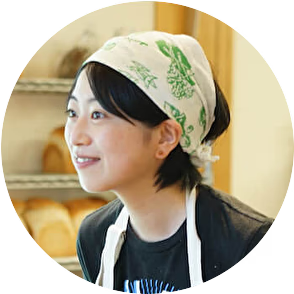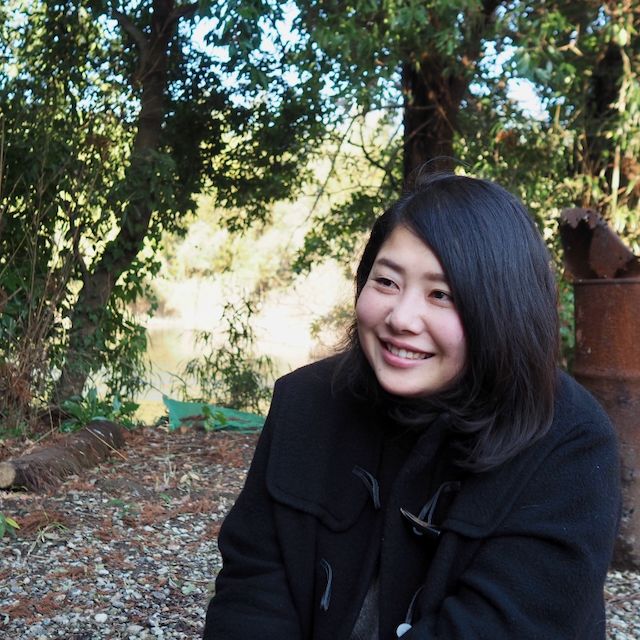※よいご縁があり、求人募集は終了いたしました。ご応募・ご紹介、ありがとうございました。お店のオープン、楽しみにお待ち下さい!
モノサスでは2020年から「Good Food, Good Job!良い”職”は、良い”食”から。」を合言葉に「MONOSUS社食研」という食の事業が始まりました。関連会社である徳島・神山のフードハブ・プロジェクトと連携しながら、無添加食品が並ぶ食料品店の運営や、人が集い企業の新しい文化が生まれる社食づくりなど、さまざまなプロジェクトに取り組んでいます。
MONOSUS社食研で最初に手掛けたのが、東京・銀座に期間限定で開いたお店「かまパン&フレンズ<ナチュラル物産館>」。全国各地の地元で愛される食材や農家から産直で届く野菜を販売したり、つくり手と直接話せる青空市を開催したり、いろいろなことを試す場所にもなりました。
お店があった銀座ソニーパークの一時閉園に伴い、銀座での営業は9月末で終了。現在移転先として、代々木にあるモノサス本社の一角を改装して、あたらしいお店をつくる準備を進めています。
2月上旬のオープンを目指すなか、今回のお店の中心になる開発・製造部門を担う人を募集することになりました。
お店には野菜や食料品が並ぶスペースと、ドーナツやコーヒーで一息つける小さなイートインスペースをを設置。キッチンでは各地の生産者のみなさんから届く食材を使ったジャムやソース、ドーナツをつくる予定です。
この場所をきっかけにつくる人と食べる人が身近な、友だちのような存在になり、一緒に食について考えていけるお店を目指したいと思っています。
どんなお店で、どんなものをつくるのか。まずは、お店のコンセプトをチームのメンバーと考えているモノサスのデザイン係&フードハブ・プロジェクトの共同代表・支配人の真鍋さんに話を聞いてみます。
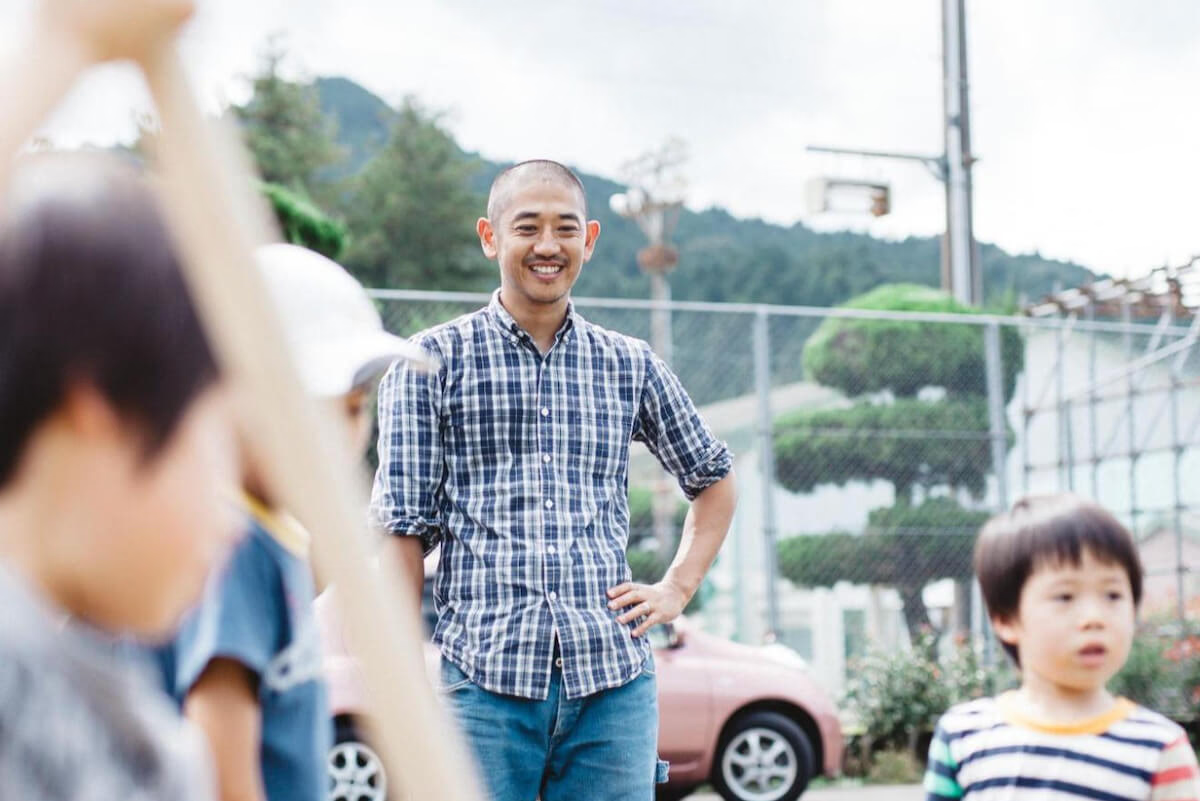
- まずは1年間、銀座のお店をやってみてどうでしたか?
いろいろなことを試してみたけど、野菜が予想以上に売れたのがうれしい誤算。ただ安いから売れたというより、よく買いに来てくれる常連さんがたくさんできたんだよね。つくり手のことを紹介していくことで、畑で育てている空気感も一緒に、届けられたんじゃないかなと思っています。
- 銀座駅のコンコースで毎日てんこ盛りの野菜を売っていましたよね。土がついているじゃがいもや、どうやっても袋からはみ出してしまう大きなネギを喜んで持って帰っていった人たちをよく覚えています。
毎週野菜を送っていた神山では、出荷場に集まったおじいちゃんおばあちゃんたちが「自分たちの野菜を銀座に送るんだ」って嬉しそうに話していて。野菜を通してお互いの景色の交換というか、つながっている感じが想像以上に生まれたのは、すごくよかったんじゃないかな。
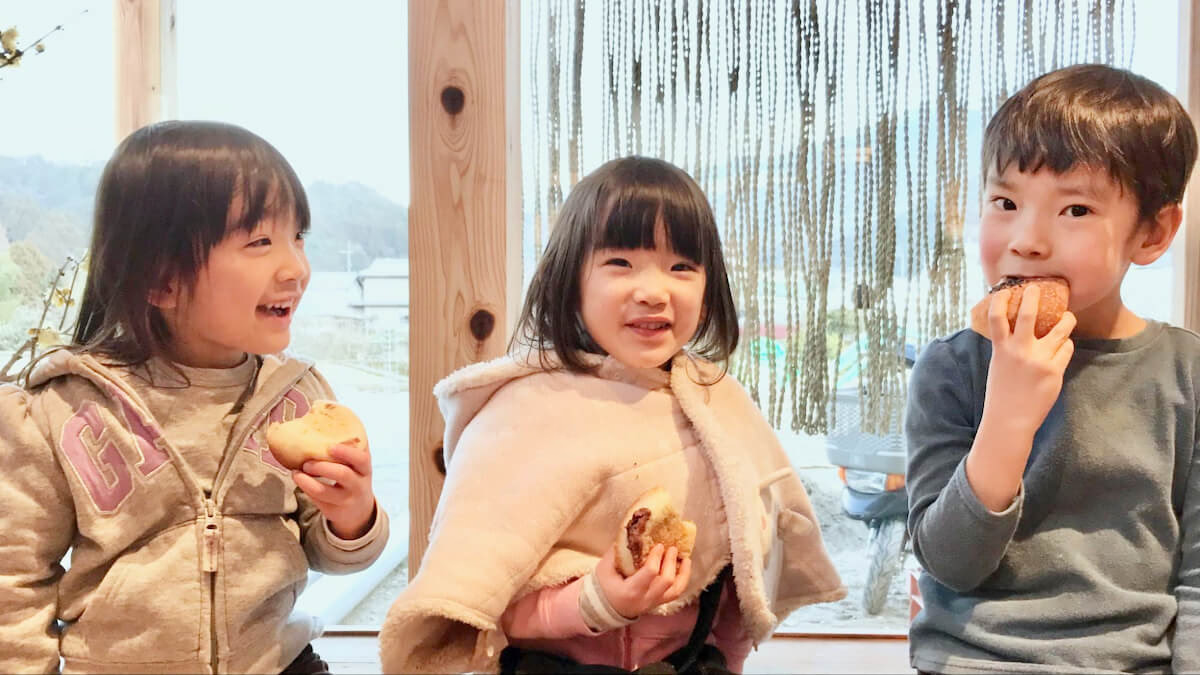
銀座のかまパン&フレンズ<ナチュラル物産館>。全国各地で愛される物産品や産直で届く野菜が並びました。
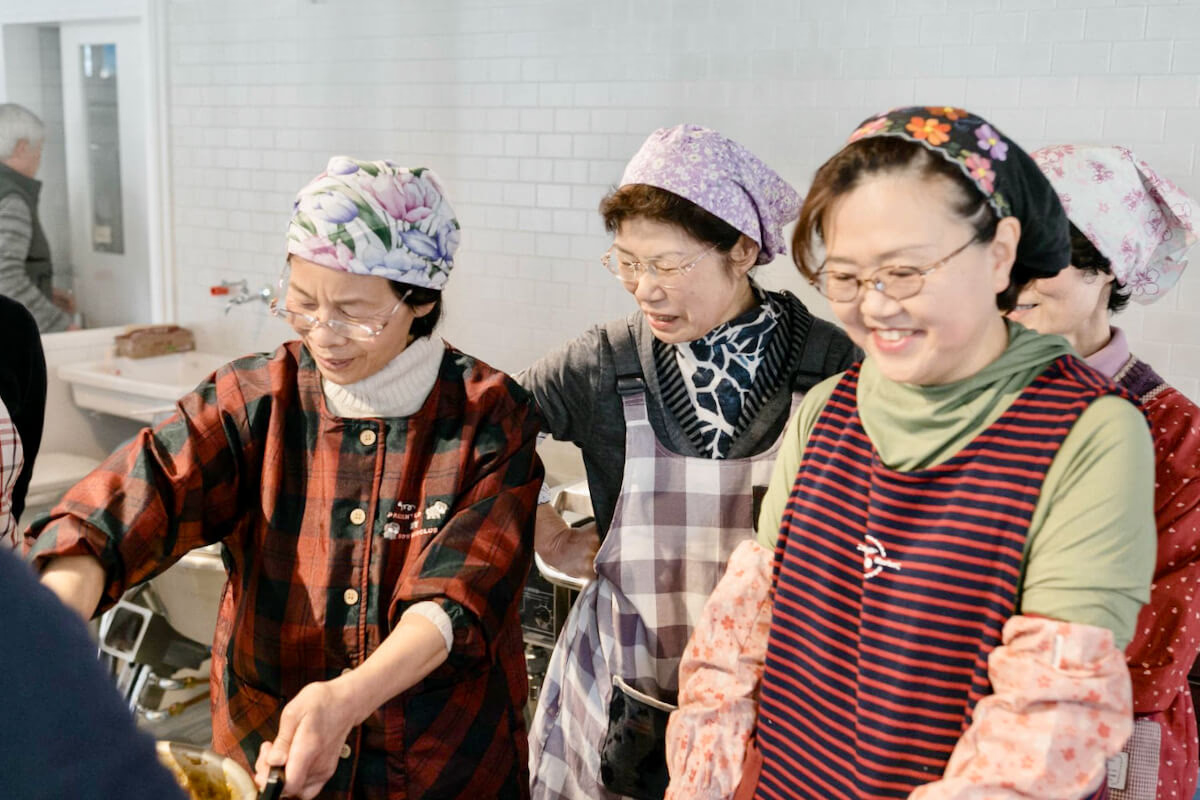
神山から野菜を届けてくれる、里山の会のみなさん。
一方で反省点なのが、お店の中心になった「仕入れて売る」っていうことは、我々はそんなに得意じゃなかったんだよね。そこに気づけたことはすごくいい経験になりました。
Webをつくるモノサスも、野菜を育て、料理やパンをつくるフードハブも「つくる」ことが得意なんだよね。モノサスの一角を使ってはじめるお店は、つくることをもう一度真ん中に置いて、都市でなにができるかを考える場所にしていこうと思っています。
- つくることを真ん中に。
うん。ものづくりをしながら考えたり、試したり、実験し続ける場所。お店の名前は「FarmMart & Friends」に決めました。農家の直売所のようであり、モノサスのメンバーや代々木の人たちにとってコンビニのように気軽に立ち寄れるお店にしたい。「これからの便利ってなんだ?」みたいなものも同時に考えたい。中心にあるのはつくること。第一弾の看板商品は、ジャムとドーナツです。
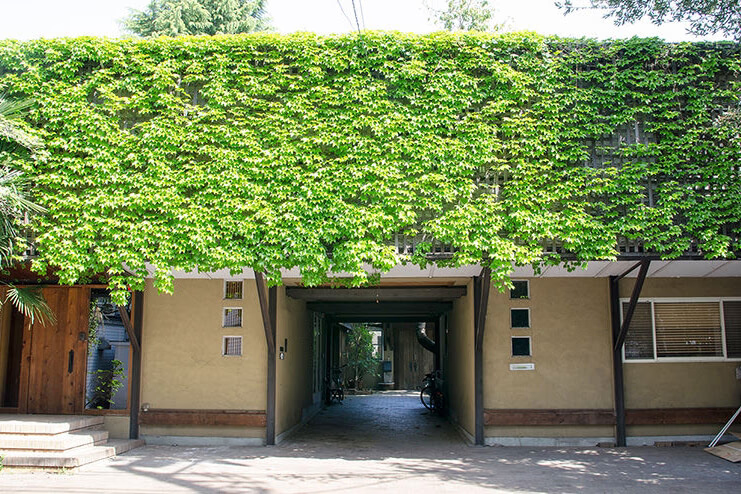
場所は代々木の住宅街にあるモノサスのオフィスの一部を改装予定。横には薪窯でパンを焼く「パン屋塩見」が営業していて、毎日いいにおいが漂っています。
ジャムのアイデアは、商品開発に入ってくれている野村友里さんを中心とした『eatrip』のメンバーが出してくれました。神山の果物なんかでつくっているフルーツソースは素材がいきているから、いろいろな食材が集まる東京でもつくれたらいいんじゃないか。それを食べるきっかけとしてドーナツはどうだろうって提案してもらって、一緒に準備を進めています。
- 具体的にどんなものを考えているんですか。
ドーナツは“ファームドーナツ”と呼んでいて。10種類以上の雑穀を練り込んだものと、ジャムを入れたドーナツの2種類。ドーナツってすごく気軽に食べられるけど、伝えられることがいっぱいあると思っているんだよね。
- 伝えられることがいっぱいある。
たとえば新しいお店が、東京で暮らす人と農家が友だちになるきっかけをつくれるような場所だといいなって。モノサスのメンバーや地域の人がお店でドーナツを食べて、『これおいしい!』『ビーツを使ったジャムなんです』『どこで育ててるんですか?』『青梅にある畑で、堆肥から自分たちで育てている人たちで』なんて話をしているときに、ビーツを育てたOme Farmのメンバーが野菜を届けに来る。話が盛り上がって、今度よかったら畑においでよってつながっていく。
食べものでぎゅっと距離が縮まる、みたいなことがたくさん起きる場所にしていきたい。農家の友だちが1人でもできて、畑のことを知ったり、気にかけるようになるだけで、実は日本の農業ってもっとよくなるというか。支援するとかそういうことではなくて。
育てた人と、つくった人と、お店に来た人と一緒に食べる。友だちと食事をするように、横並びの関係で、一緒に都市での食について考えていけるような場所にしていきたいよね。
どこの誰が育てたかわかる野菜を買い、育てた人と直接会って、友だちのように話ができる関係ができる。おいしかったことを伝えたり、実際に畑を訪れてみたり。
代々木にできる新しいお店では、ジャムやドーナツをきっかけにつくり手と食べ手が身近な存在になることで、少しずつでも一緒に、社会をより良くしていくような関係が生まれていくことを目指します。
加えて、地域の食料庫のような食料品店であり、ワークショップなどさまざまな形で食について考える場であり、いろいろな生産者や料理人と関わりながらものづくりをしていく拠点として動いていくことになりそうです。
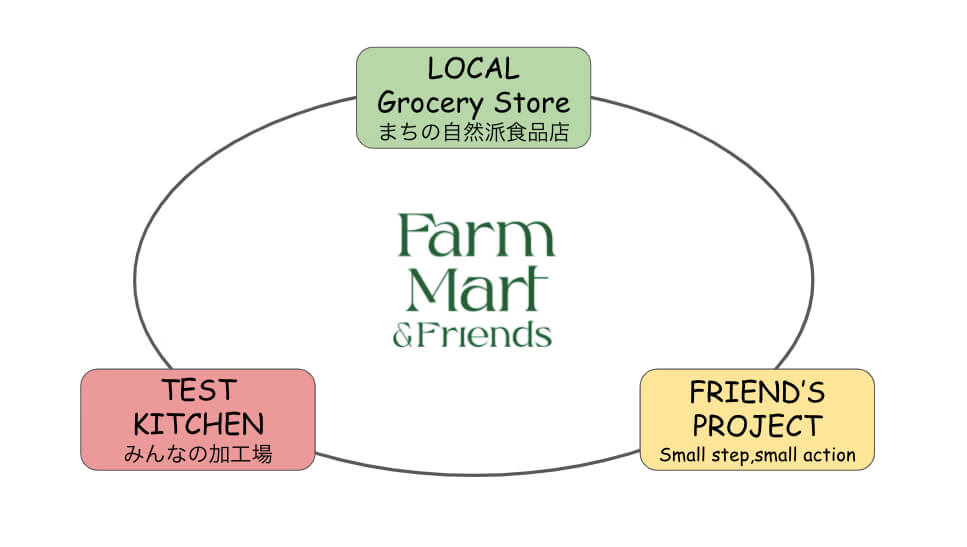
今回募集する開発・製造担当の人も、素材を育てる生産者や食べてくれる代々木の人たちと関わりながら、この場所らしい食について一緒にいろいろなことを試してもらいたいと思っています。
そのためにも大切なのは、日々こつこつ、おいしいジャムやドーナツをつくること。具体的にどんなものをつくることになるのか、商品開発を進めている細井さんにも話を聞いてみます。
- ドーナツやジャムは、どんなものになるんでしょうか。
季節のフルーツ、そして野菜を使ったジャムを4種類。そのジャムをおいしく食べるふわふわのジャムドーナツと、生地に色々な穀物をたっぷりと練りこんだ雑穀ドーナツの開発が進んでいます。お店をやりながら変えていくことも多いと思うけど、まずはそこからスタートする予定です。
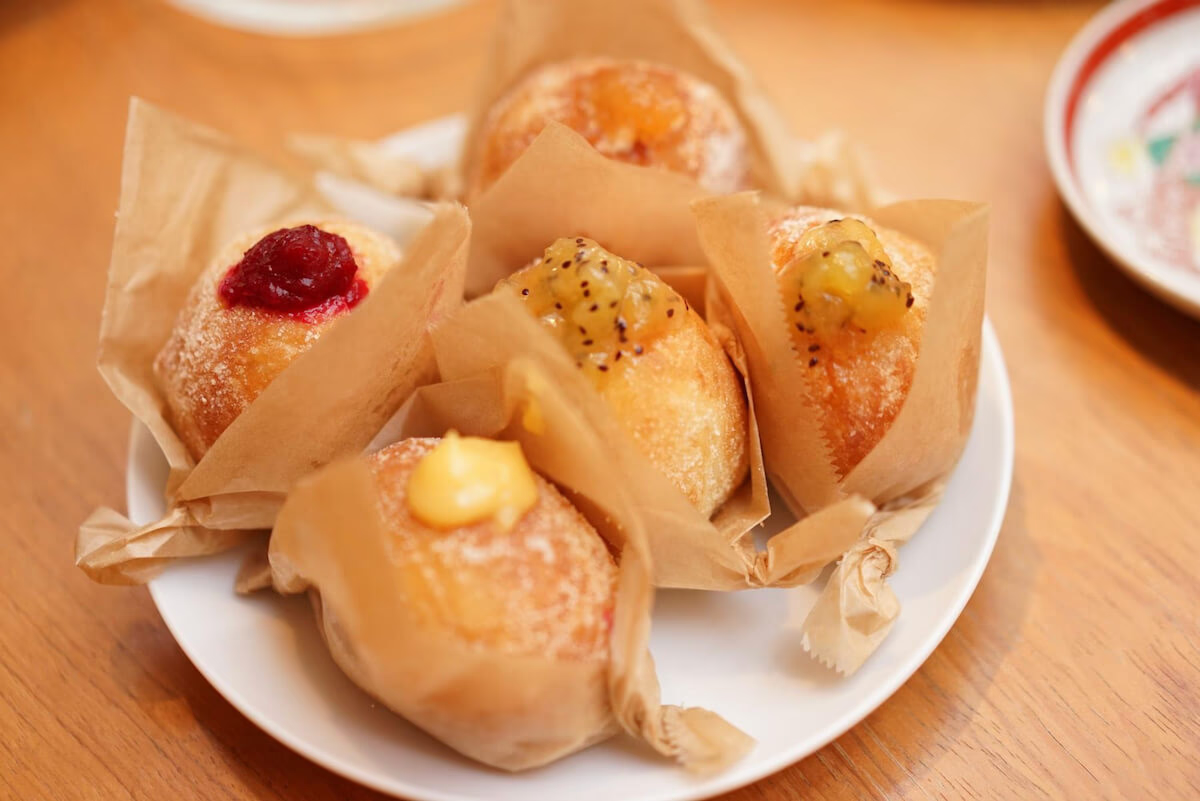
ジャムドーナツを試作中。生地は神山の「かまパン」で「やらこい(柔らかい)パンないんか〜」という地域の人の声から生まれた人気商品「超やわ食パン」をベースにつくっています。
ジャムはフードハブでつくっているフルーツソースをベースにしながら。今はキウイ、りんご、すだち、ビーツの4種類のジャムをつくっているところです。
通年つくるものがあったり、季節によって使う素材を変えてみたり。まずは1年、いろいろ試しながら、流れがつかめてくると思います。
- ジャムはどうやってつくっていくことになるんですか。
基本的には農家さんと話しながら考えていて。今つくっているリンゴのジャムは、宮城のりんご農家イドバダ・アップルさんが育てるシナノゴールドという品種のものを使わせてもらおうと相談しています。
リンゴって日本では生で食べることが多いから、フジとかジョナゴールドとか、甘みの強いものが人気だそうで。海外では火を通して食べることが多いのもあって、適度に酸味があるシナノゴールドが喜ばれる。日本では加工に選ぶ方があまりいないようで、使ってもらえたら嬉しいって言ってくれていて。
そういうことって、農家さんと直接話すからわかることだったりするんです。農家さんも喜んでくれるものに着目してみて、私たちはどういうものがつくれるだろうって考えるのを楽しめる人が合う仕事だと思います。
- 細井さんも全国各地の畑や牧場を回って、生産者さんとよく話をしていますよね。
台風で落ちちゃったんだけど味はいいから使えないかな?とか、今年はこれがおもしろい味になったから使ってみてよ、とか。ときには、いろんな理由で想定していた量が入らないっていうことも出てくるとがある。そういうときにフレキシブルに対応ができるようになると、おもしろいよね。
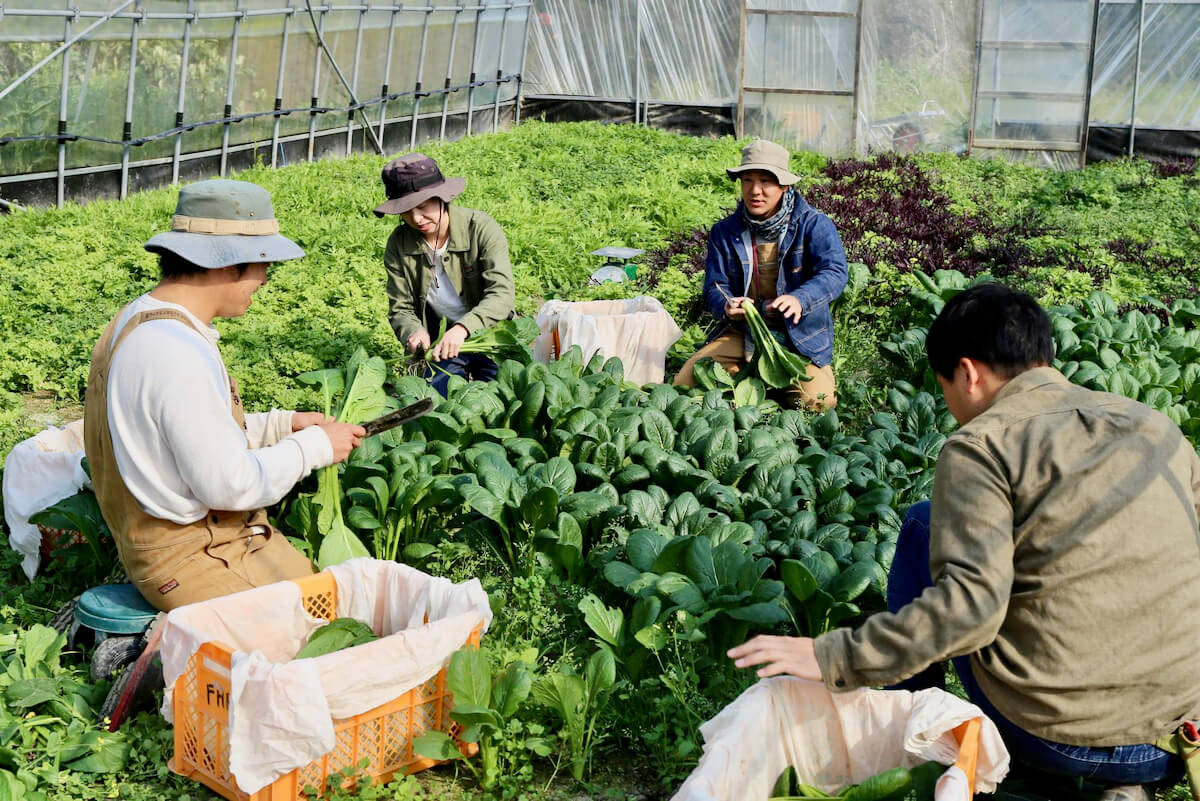
神山の「つなぐ農園」チーム。ドーナツ生地の材料となる「神山小麦」やキウイ・すだちなどの果樹、野菜を届けてくれます。
- いろいろな素材をジャムにするとき、難しいことってありますか。
ものが違えば味も変わる。届いたものを食べてみて、いつもより酸味が少ないから果汁を100cc足してみようとか。レシピ通りにはいかないことを自然の摂理と捉え、素材に向き合いながら美味しいってことを探していくのは、大変だけどやりがいがある仕事です。
生産者さんとつくる最初のものとしてジャムを考えているけど、やりながら、いろんなことを試していくことになると思っていて。野菜のソースや調味料といったしょっぱい瓶詰めも少しずつ生まれていくと楽しいよね。
話を聞かせてくれた真鍋さんや細井さんは東京と神山を行き来しながら、いつでも話せる相談相手になってくれるはず。
商品開発は同じ渋谷区にお店を構える『eatrip』のメンバー、店舗の設計は渋谷区に事務所がある長坂常さんの『スキーマ建築計画』と相談しながら進めています。ご近所のみなさんと一緒にものづくりができることも、このお店の大きな楽しみのひとつです。
お店を一緒に運営していくのは、銀座のお店で店長を務めていた弓削さん、そして神山からやってくる種本さん。お店の運営はMONOSUS社食研の責任者である荒井さんが支えます。こちらの記事で紹介しているので、よかったらご覧になってみてください。
-
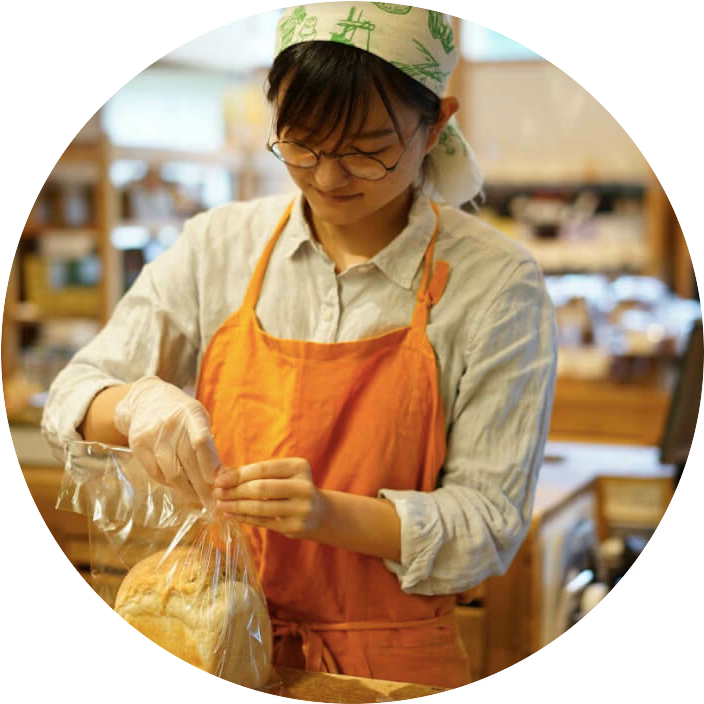
-
プロジェクト責任者 種本「食べる」を通して「顔の見える」関係を築きたい
-

-
事業責任者 荒井日日是好日 ~ いままでとこれからと~
コンセプトやつくるものが定まりつつありますが、いろいろな人と関わりながら柔軟にお店を運営していくうちに、1年後には思っていたのと違うお店になっている、なんてこともあるかもしれません。
たくさん話して一緒に考えながら、温かいお店をつくっていってくれる人からのご連絡、お待ちしています。まずはお気軽にご連絡ください。
※よいご縁があり、求人募集は終了いたしました。ご応募・ご紹介、ありがとうございました。お店のオープン、楽しみにお待ち下さい!
